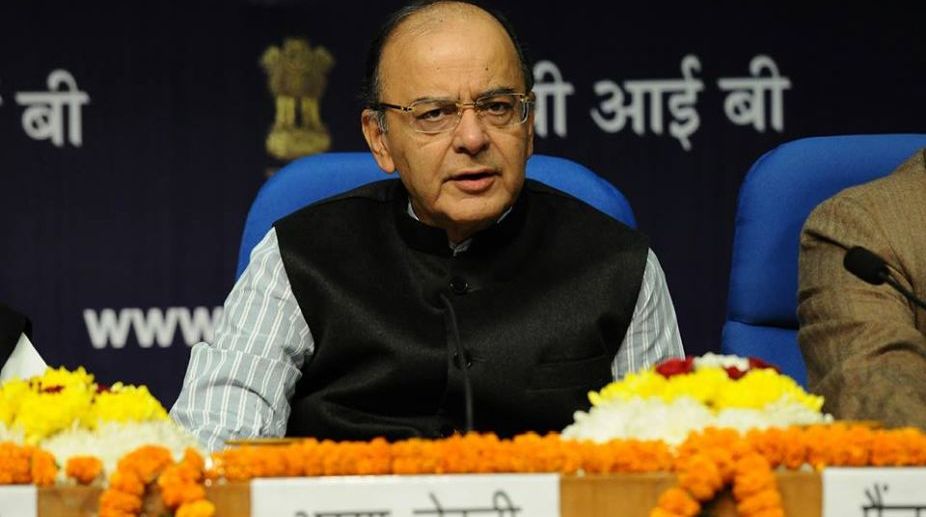Police gets extra cautious with security measures for Ram Navami
To prevent any unpleasant incidents in the city during Ram Navami celebrations ahead of the Lok Sabha election, police headquarters at Lalbazar were on high alert.

Finance Minister Arun Jaitley (PHOTO: FACEBOOK)
Demonetisation was a “shock” necessarily required for the Indian economy which was largely non-tax compliant, and it had proved politically correct also, Finance Minister Arun Jaitley today said in the Rajya Sabha, replying to the debate on the General Budget and the two Appropriation Bills for 2016-17 and 2017-18.
The Appropriation Bills, already passed by the Lok Sabha, were returned to the Lower House. The Rajya Sabha will discuss the Finance Bill, 2017, passed by the Lok Sabha with amendments, next week.
Mr Jaitley said the Goods and Services Tax (GST) Council had finalised five follow-up Bills on the GST Act with State Governments through consensus, and the Council had decided to roll out the new unified tax from 1 July, although the legal deadline was 15 September next.
Advertisement
The Finance Minister said the non-compliance of taxation laws was not a problem just for the Centre, the States were equally affected. The country had cash circulation amounting to 12.2 per cent of its GDP and 86 per cent of it was in high denomination currency. Crime might continue even after demonetisation, as stated by the Congress Party,
but must cash remain a facilitator for that, Mr Jaitley asked.
“Must we keep adding to the cash flow when alternative methods were available,” he said. Mr Jaitley said the total direct and indirect tax collections of the government were going up from Rs 16.25 lakh crore to Rs 17 crore, equally contributed by the two forms of taxation. The taxes helped in programmes for the poor, Defence and rural India
requirements, he said. There were fears that trade had suffered but how were then the revenue targets already exceeded. The VAT collections were up in all States, except two, he said. Unaccounted money had come into banks.
Only 76 lakh persons paid income tax, 61 lakh of whom were salaried persons, he pointed out, adding that doctors, lawyers and traders were included in the remaining 15 lakh. “Do we need to increase their number or not,” Mr Jaitley asked. He said “the shadow economy” had got a bit jolt from demonetisation and the government stood by its decision.
The Finance Minister said the GST Council was India’s first federal decision-making body. He said instead of taking decisions by majority, it had taken all decisions by consensus, even if it meant repeated meetings. Tax collections between the States and the Centre would be divided through computers. Earlier, traders had to go before four to eight authorities but now it would be just one authority.
Mr Jaitley said the Plan-non Plan expenditure merger would not reduce the allocations for scheduled castes and scheduled tribes. Replying to clarifications, the Minister said 90 per cent of income tax assessments would be through an IT-backed system, and only five per cent would go through scrutiny. All communications and replies would be online and the whole system would be rule-based. Only large transactions could be red-flagged by the computer software. The
Minister said Rs 2000 cash donation limit for political parties was the Election Commission’s suggestion, and together with electoral bonds, this would help reform the electoral process.
Advertisement